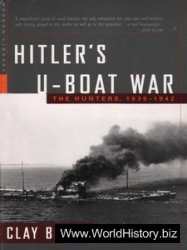

Bandellier reiter

Ishing • Www. ospreypublishing. com
'he Holy Roman Empire had never been a properly unified political construct and things had become worse after Luther had introduced religion as a further cause of division. Tension between the Catholic and Reformed Religions had been increasing since the late 16th century. A legally dubious move by the Emperor to allow the Catholic Maximilian I of Bavaria to punish the free city of Donauworth (for breaking the religious peace by interfering with the Catholic minority practicing their beliefs) and the subsequent forcible re-Catholicisation of the city, finally convinced several Protestant leaders to form a defensive union in 1608. However, many Protestant leaders abstained from taking part, mostly because the Protestants themselves were split along Calvinist and Lutheran lines and the defence union was mostly led by Calvinists.
The attempt of the Archduke Ferdinand II to re-Catholicise economically important Bohemia
Led to the famous 2nd Defenestration of Prague in 1618, and a revolt of the Bohemians against the Emperor. The Palatine Elector Friedrich V used this to get himself elected King of Bohemia. In an attempt to limit the inevitable conflict, the Protestant Union agreed with the Emperor on an armistice that excluded Bohemia, thus isolating Friedrich V. Deprived of support and hoping vainly for help from England or the Low Countries, the initially promising revolt was now facing serious trouble. The only real help was a small mercenary army under Ernst von Mansfeld, and Bethlen Gabor‘s revolt and subsequent invasion of Hungary. While Bethlen’s actions tied up Imperial troops the Emperor could still rely on the Catholic League and Spanish troops to carry out his war, ultimately leading to a total Bohemian defeat near Prague at the Battle of White Mountain (1620).
Whilst the fighting in Bohemia ended in May 1621, Friedrich V and other Protestant rulers attempted to regain the Rhenish Palatinate from the Spanish and the Catholic League until 1624. These efforts were supported by the Dutch, who had been battling the Spanish for decades, and who could not ignore a strong Spanish presence on the Rhine. Still Protestant attempts ended in defeat in almost every battle, most notably the battles of Wimpfen and Hochst in 1622.




 World History
World History









